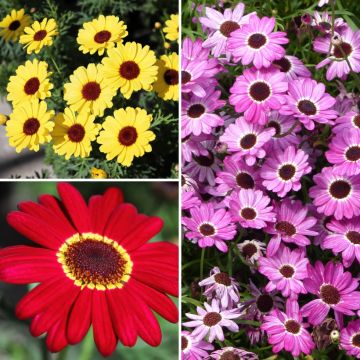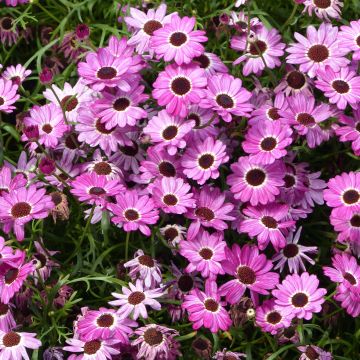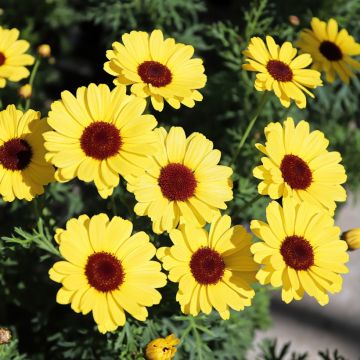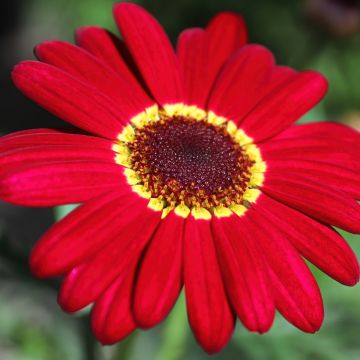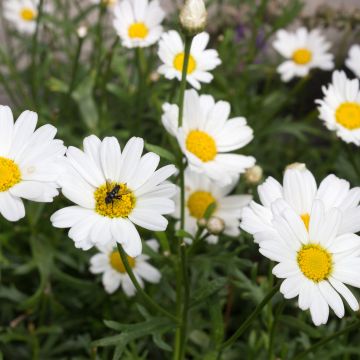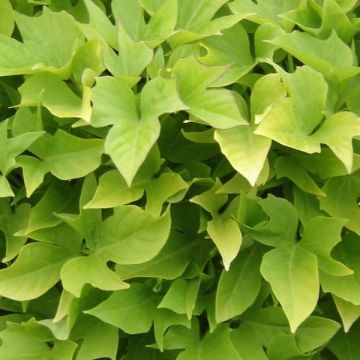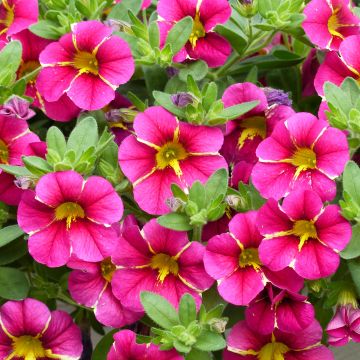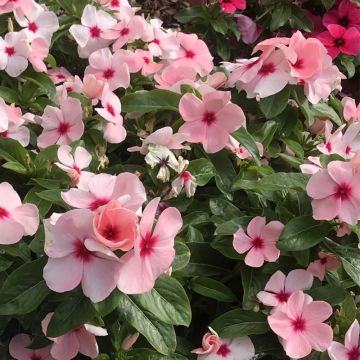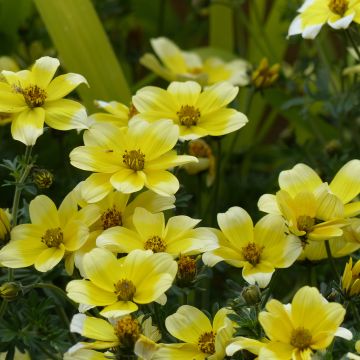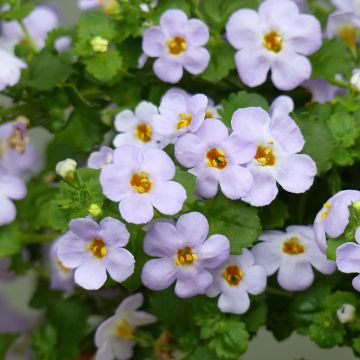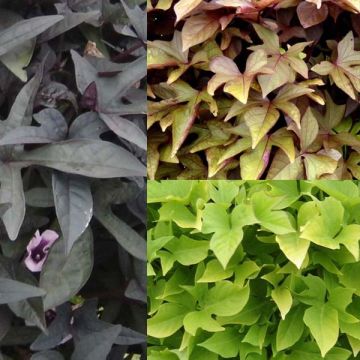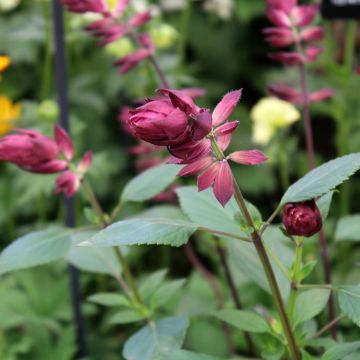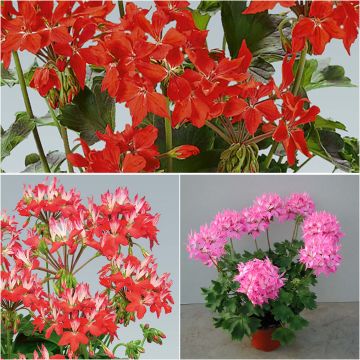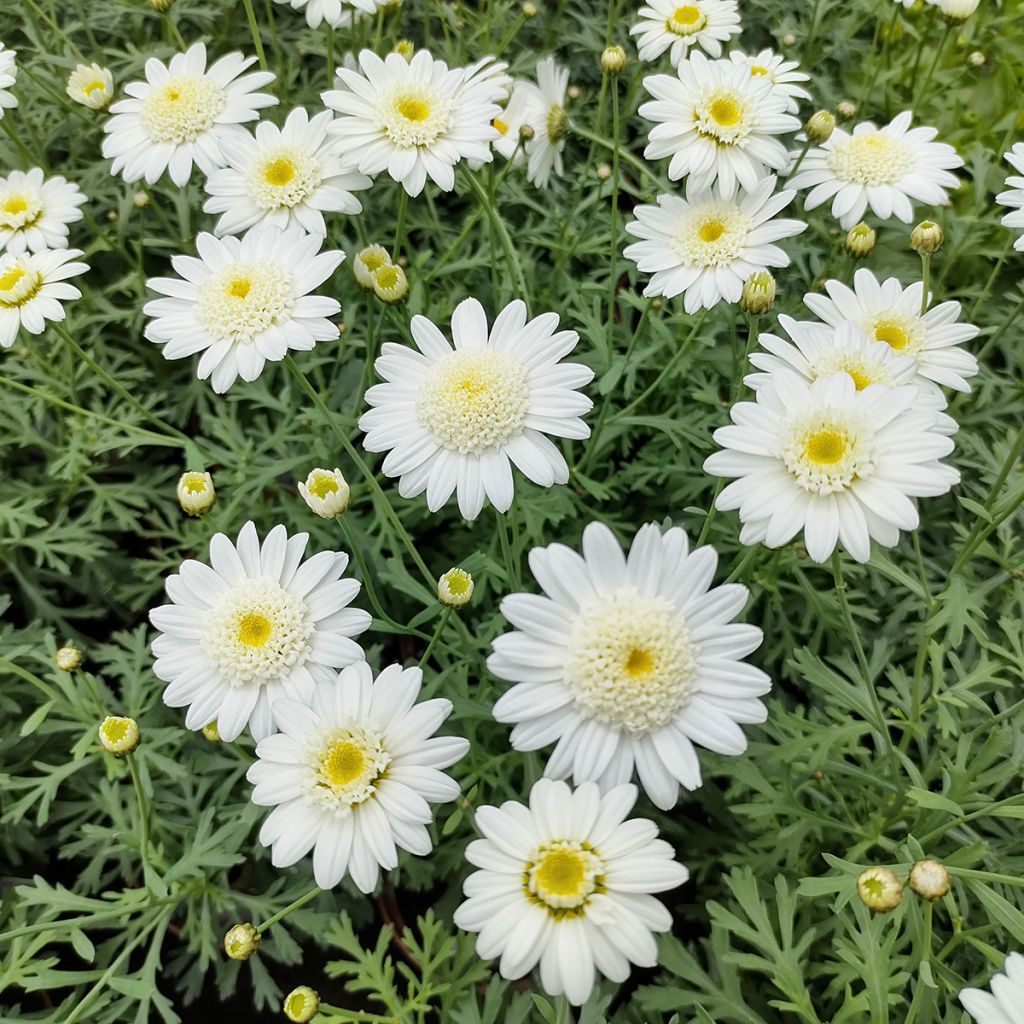

Argyranthemum Qinta White - Marguerite bush
Argyranthemum Qinta White - Marguerite bush
Argyranthemum frutescens Qinta White
Marguerite bush, Paris daisy, Marguerite shrub, Marguerite tree
Special offer!
Receive a €20 voucher for any order over €90 (excluding delivery costs, credit notes, and plastic-free options)!
1- Add your favorite plants to your cart.
2- Once you have reached €90, confirm your order (you can even choose the delivery date!).
3- As soon as your order is shipped, you will receive an email containing your voucher code, valid for 3 months (90 days).
Your voucher is unique and can only be used once, for any order with a minimum value of €20, excluding delivery costs.
Can be combined with other current offers, non-divisible and non-refundable.
Why not try an alternative variety in stock?
View all →This plant carries a 6 months recovery warranty
More information
We guarantee the quality of our plants for a full growing cycle, and will replace at our expense any plant that fails to recover under normal climatic and planting conditions.

Would this plant suit my garden?
Set up your Plantfit profile →
Description
Argyranthemum Qinta White is a charming variety of marguerite or Canary chamomile with flowers that have a pretty fringed heart tinted with yellow. This plant forms a small, wide, and slightly loose bush that blooms profusely from late spring to early autumn. A perennial but frost-sensitive plant, it is used for pots on terraces and balconies, as well as in seasonal flower beds. Its cut flowers can also be used to create country-style bouquets.
Argyranthemum (synonyms Anthemis frutescens, Chrysanthemum frutescens) belongs to the Asteraceae family. It is a native species of the Canary Islands that perishes below -3°C (26.6°F) but withstands drought well when planted in the ground. 'Qinta White', sometimes marketed under the name Argyranthemum frutescens 'Sark', is a horticultural selection derived from this plant. This evergreen shrubby perennial forms a generally rounded clump, wider than it is tall, 70 cm (28in) high and 80-90 cm (32-35in) wide. Its flexible and branched stems bear finely cut, light green-grey leaves, theoretically persistent in winter. Flowering can begin as early as May, depending on the growing conditions. It constantly renews itself until the first frost if the soil remains moist. If it gets too hot and dry in July-August, it withers and only resumes growth when the rains return. The flowers of Qinta White resemble white, 4-5 cm (2in) daisies, with pure white ligulate florets surrounding a fringed light yellow centre.
The simple daisies of Argyranthemum Qinta White bloom for a long period. With its decorative qualities and generosity, it is an ideal plant to use with more traditional biennials such as wallflowers or nemesias. It is perfect in pots and planters for terraces, balconies and window sills. It can also be planted alongside romantic roses and peonies, which it will also accompany in lovely bouquets. Anthemis can be kept from one year to the next by overwintering like florist geraniums.
Report an error about the product description
Flowering
Foliage
Plant habit
Botanical data
Argyranthemum
frutescens
Qinta White
Asteraceae
Marguerite bush, Paris daisy, Marguerite shrub, Marguerite tree
Cultivar or hybrid
Planting and care
You can plant the Canary Daisy Qinta White in the ground after the last frosts, in any well-drained soil, even poor and limestone or sandy soil. Once well-rooted, this plant withstands drought well in summer but its flowering will decline if it is too hot and dry. It perishes below -3°C (26.6°F) even in a sheltered position. Choose a sunny or partially shaded location during the hottest hours as the Canary Daisy doesn't like excessive summer heat. It particularly enjoys being by the seaside.
Pot cultivation: very similar to that of ivy geranium or florist's geranium. Place in a large pot with a minimum diameter of 30 cm (12in), in a mixture of potting compost, garden soil, and coarse sand. Water regularly but sparingly and apply flowering plant fertiliser every 15 days. You can overwinter your potted plant in a bright, unheated room, kept frost-free.
Planting period
Intended location
Care
This item has not been reviewed yet - be the first to leave a review about it.
Similar products
Haven't found what you were looking for?
Hardiness is the lowest winter temperature a plant can endure without suffering serious damage or even dying. However, hardiness is affected by location (a sheltered area, such as a patio), protection (winter cover) and soil type (hardiness is improved by well-drained soil).

Photo Sharing Terms & Conditions
In order to encourage gardeners to interact and share their experiences, Promesse de fleurs offers various media enabling content to be uploaded onto its Site - in particular via the ‘Photo sharing’ module.
The User agrees to refrain from:
- Posting any content that is illegal, prejudicial, insulting, racist, inciteful to hatred, revisionist, contrary to public decency, that infringes on privacy or on the privacy rights of third parties, in particular the publicity rights of persons and goods, intellectual property rights, or the right to privacy.
- Submitting content on behalf of a third party;
- Impersonate the identity of a third party and/or publish any personal information about a third party;
In general, the User undertakes to refrain from any unethical behaviour.
All Content (in particular text, comments, files, images, photos, videos, creative works, etc.), which may be subject to property or intellectual property rights, image or other private rights, shall remain the property of the User, subject to the limited rights granted by the terms of the licence granted by Promesse de fleurs as stated below. Users are at liberty to publish or not to publish such Content on the Site, notably via the ‘Photo Sharing’ facility, and accept that this Content shall be made public and freely accessible, notably on the Internet.
Users further acknowledge, undertake to have ,and guarantee that they hold all necessary rights and permissions to publish such material on the Site, in particular with regard to the legislation in force pertaining to any privacy, property, intellectual property, image, or contractual rights, or rights of any other nature. By publishing such Content on the Site, Users acknowledge accepting full liability as publishers of the Content within the meaning of the law, and grant Promesse de fleurs, free of charge, an inclusive, worldwide licence for the said Content for the entire duration of its publication, including all reproduction, representation, up/downloading, displaying, performing, transmission, and storage rights.
Users also grant permission for their name to be linked to the Content and accept that this link may not always be made available.
By engaging in posting material, Users consent to their Content becoming automatically accessible on the Internet, in particular on other sites and/or blogs and/or web pages of the Promesse de fleurs site, including in particular social pages and the Promesse de fleurs catalogue.
Users may secure the removal of entrusted content free of charge by issuing a simple request via our contact form.
The flowering period indicated on our website applies to countries and regions located in USDA zone 8 (France, the United Kingdom, Ireland, the Netherlands, etc.)
It will vary according to where you live:
- In zones 9 to 10 (Italy, Spain, Greece, etc.), flowering will occur about 2 to 4 weeks earlier.
- In zones 6 to 7 (Germany, Poland, Slovenia, and lower mountainous regions), flowering will be delayed by 2 to 3 weeks.
- In zone 5 (Central Europe, Scandinavia), blooming will be delayed by 3 to 5 weeks.
In temperate climates, pruning of spring-flowering shrubs (forsythia, spireas, etc.) should be done just after flowering.
Pruning of summer-flowering shrubs (Indian Lilac, Perovskia, etc.) can be done in winter or spring.
In cold regions as well as with frost-sensitive plants, avoid pruning too early when severe frosts may still occur.
The planting period indicated on our website applies to countries and regions located in USDA zone 8 (France, United Kingdom, Ireland, Netherlands).
It will vary according to where you live:
- In Mediterranean zones (Marseille, Madrid, Milan, etc.), autumn and winter are the best planting periods.
- In continental zones (Strasbourg, Munich, Vienna, etc.), delay planting by 2 to 3 weeks in spring and bring it forward by 2 to 4 weeks in autumn.
- In mountainous regions (the Alps, Pyrenees, Carpathians, etc.), it is best to plant in late spring (May-June) or late summer (August-September).
The harvesting period indicated on our website applies to countries and regions in USDA zone 8 (France, England, Ireland, the Netherlands).
In colder areas (Scandinavia, Poland, Austria...) fruit and vegetable harvests are likely to be delayed by 3-4 weeks.
In warmer areas (Italy, Spain, Greece, etc.), harvesting will probably take place earlier, depending on weather conditions.
The sowing periods indicated on our website apply to countries and regions within USDA Zone 8 (France, UK, Ireland, Netherlands).
In colder areas (Scandinavia, Poland, Austria...), delay any outdoor sowing by 3-4 weeks, or sow under glass.
In warmer climes (Italy, Spain, Greece, etc.), bring outdoor sowing forward by a few weeks.






























